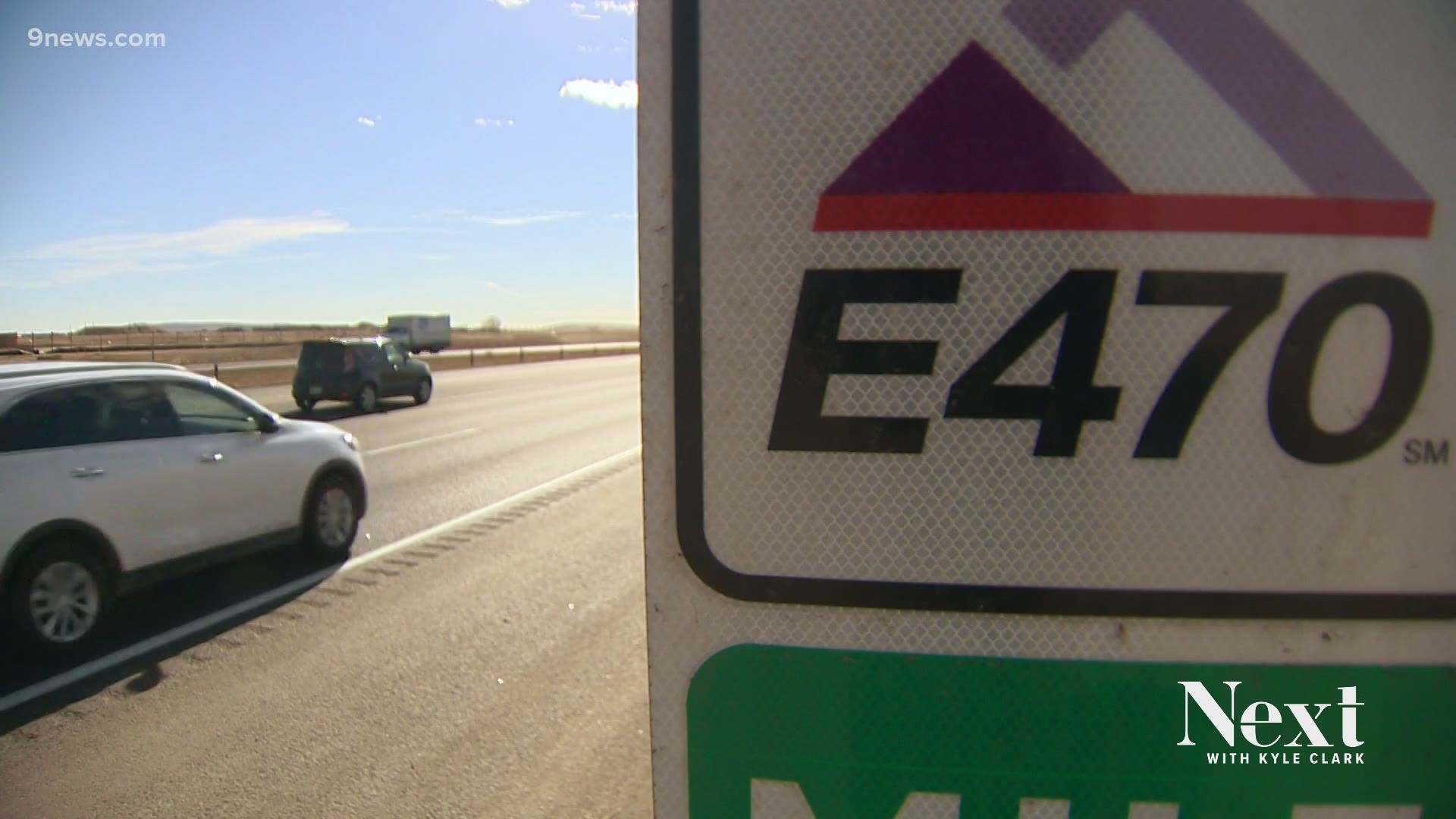DENVER — It's an answer to a question many of you have asked.
When will E-470 be free?
2076.
Really.
State statute has the Colorado Dept. of Transportation (CDOT) taking control of E-470 in 2076. Whether state lawmakers change that statute between now and 2076 is another story.
In the meantime, a Canadian company wants to take control of the toll road in a 50-year lease agreement, and the company is offering $9.2 billion.
"What if someone came and offered you three-fold the value of your home, said you could still live in it, but then controlled how you lived in that home, how you use that home, and then future fees that would be charged for people that access that home, wouldn't that be too good to be true? I think that model may be too good to be true," said E-470 Executive Director Tim Stewart.
The unsolicited offer from ROADIS USA was presented in 2019 and quickly panned, partly because it was unsolicited.
"I think there's a misperception that the (E-470) board really never took it seriously, and that's a false perception altogether," said Stewart. "They're wanting to grab an asset that is, again, well-managed, well-run, financially now achieving stability and strength, and repurpose it for other things outside of the region."
The E-470 board, as well as the five cities and three counties that E-470 runs through, would all need to approve an agreement changing how the toll road is managed.
E-470 runs through Adams, Arapahoe and Douglas Counties and Aurora, Brighton, Commerce City, Parker and Thornton.
A citizen review committee, led by former Aurora Mayor Bob LeGare, just reviewed the ROADIS proposal and issued a 19-page report.
The committee did not give an opinion on the proposal itself, but said, "It is an opportunity that should be explored… The potential benefits for constituents living in the region could be immense as local roadway, congestion and transit issues receive much-needed attention."
"I served 17 years in the Aurora City Council, and all of those years I advocated for transportation funding. It's one area where I don't feel like I got enough done in the area of funding," said LeGare.
LeGare was mayor when ROADIS presented it's $9 billion pitch to Aurora City Council. He supports the idea of getting into a public-private partnership, which would pay of existing E-470 debt and provide $4.2 billion to the five cities and three counties that E-470 serves.
"That would build roads and make connections, basically, all over the eastern metro area," said LeGare. "I suspect that the E-470 authority is working to drive a silver stake in this concept."
"You're asking for users of an existing system to fund things elsewhere," said Stewart.
He said tolls are currently broken down 60/40. Sixty cents of every dollar tolled pays for maintenance and expenses, while 40 cents of every dollar pays down the $1.4 billion in existing E-470 debt. He anticipates the debt to be fully paid by 2041.
"That fee that they choose to pay when they drive E-470, not tax dollars, but fee, paid by the consumer that is used to drive E-470, it would now be diverted to be used elsewhere? I think you've now entered the argument of a fee versus a tax," said Stewart.
"It makes sense as part of the metro transportation system. So, it would make sense for CDOT to participate in the, kind of, asset recycling that we're talking about here," said ROADIS USA President Mike Cheroutes.
Cheroutes was the first director of CDOT"s High Performance Transportation Enterprise, which looks for public-private partnerships to pay for infrastructure, similar to what he's now seeking to do with a $9 billion dollar offer upfront to E-470 as head of ROADIS.
"Why would we do that? Because we believe that the toll revenues -- whatever the limited rates would be -- will be sufficient to pay us back for that money, at our risk, plus a reasonable rate of return," said Cheroutes.
According to the citizen review committee report, the ROADIS plan would tie toll rate increases to inflation, and share revenue with E-470 above a 5.5% rate of return.
"E-470 has control of what kind of tolls they want on that road, that would be set out in the contract under which we would be operating," said Cheroutes.
"The last four years, we've frozen toll rates. Our intent is to take those rates lower," said Stewart.
As of now, E-470 has no plans on changing how it operates.
Though, the citizen review committee suggests a closer look, and perhaps seeking other proposals.
"The CRC (Citizen Review Committee) is not endorsing the ROADIS proposal or suggesting that the ROADIS bid be accepted as presented. The CRC is suggesting that the local governments in the E-470 region engage in a broader community discussion about the potential benefits and pitfalls of such a proposal," the committee wrote.
SUGGESTED VIDEOS: Full Episodes of Next with Kyle Clark

